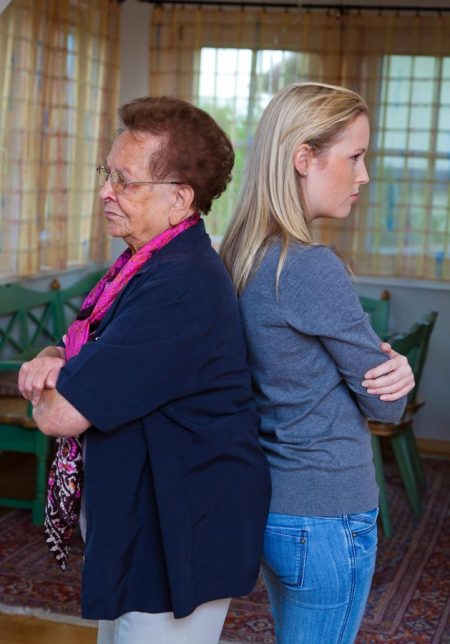I’m a longtime reader of your column and I never thought I’d be writing to you, but I guess here we are. I’ve had a hell of a year. I lost my job and found another one, split from my long-term partner and lost half of my social life, moved to a smaller house in order to pay the bills and am facing turning 45 in February with the prospect of maybe never having children.
I am having eight people over for Christmas dinner: my mother, my twin brother, my sister, my best friend and her son and daughter, a neighbor and an aunt who is visiting from Seattle. It will be the highlight of my year. However, between the tree, the decorations, the dinner and wine and spirits over a three-day period, hosting Christmas is now costing upwards of $400, and probably more than that.
For many reasons, it will be the first time we’ve all been together since before COVID: My aunt was sick and my siblings had other plans in previous years, COVID obviously ruined Christmas 2020, and last year I was in the throes of a crumbling marriage.
Hosting is a lot of work, which I don’t mind, but it will be $400 or $500 that I won’t have for bills or even a vacation when I can finally take some time off from my job. People have asked if they can bring anything. If all the adults contributed $50, I would have $300 to put toward the festivities. Is that crass? I don’t want to start on the wrong foot or offend my guests, but it’s a lot of money.
Should I ask the adults to bring cash? I already have enough cheese and crackers to see me through the winter.
Newly Single in Tampa
Dear Newly Single,
You’ve had a big year, and you have given yourself an even bigger job by hosting Christmas in your new home — but the whole point of having your own place is so you can share it with your friends and family and create memories. You’re determined to end this year on a happy note, surrounded by friends and family, and I applaud you for that.
This year, the average Christmas dinner purchased in a supermarket for a family of four will cost around $50.56, up from $47.25 in 2022, according to a recent report from Category Partners, a consumer-research and analytics company, using data from NielsenIQ. I see these surveys every year and, frankly, I tend to add an extra 20% or 30% for a real-life dinner.
Hosts often overbuy. It’s the nature of the beast. Some people drink whiskey, others may prefer red wine over white, and you want to avoid a situation where someone tells you they won’t be having seconds because they’re saving room for dessert and you are forced to say, “There is no dessert!” Or one in which they won’t be having seconds in the first place, because there was barely enough for one helping.
You need to weigh the risk versus the reward: Is that $50 from your best friend or neighbor worth a begrudging side-eye over the dinner table? People talk — mostly about themselves, it’s true, but also they also love to pick apart examples of what they see as poor etiquette. Is the payoff worth it? Would this money prevent you from paying a bill, or would it just put a dent in your plans to vacation in the Florida Keys?
You don’t say whether your immediate family and best friend are local, but you may wish to take into account the cost of traveling from Seattle to Florida at this time of year. Your aunt — and other guests — may also have already bought you presents and other provisions that you could possibly use after Christmas. And asking them to contribute cash after they have already accepted your invitation could be problematic.
I read a story about a woman who charges her family for Christmas dinner — but if that wasn’t something that rattled people’s Christmas baubles, the New York Post probably wouldn’t have published an article about her unusual stance. Of course, charging a 3-year-old grandson to teach him the power of a dollar, as she does, and asking your merry band of friends and family to contribute are two very different prospects.
If asking your friends for cash is the difference between having enough money to pay your electricity bill or not, simply tell your guests that you overextended yourself. Who wouldn’t want to pop $50 into a jar under those circumstances? But if you merely believe that you deserve a cash reward at the end of a hard year, I’m not convinced this last-minute swerve would be worth it.
Playing “the poor mouth” — we call it “an béal bocht” in Gaelic — could set you up for a fall. A photo of you in February or March sitting by a hotel pool with a drink in your hand could set tongues wagging. The terms of your invitation have already been set. Changing the social contract now for anything other than an emergency might leave your guests with more than indigestion.
More from Quentin Fottrell:
My father has dementia and ‘forgave’ my brother’s $200,000 house loan. The nursing-home notary said he was of sound mind. What can we do?
My husband bought our house with an inheritance. I signed a quitclaim. He said I could live there after he dies, but changed his mind. What now?
Low-paying jobs are the economy’s way of saying you should get a better job’: I’ve decided to stop tipping, except at restaurants. Am I wrong?
You can email The Moneyist with any financial and ethical questions at [email protected], and follow Quentin Fottrell on X, the platform formerly known as Twitter. The Moneyist regrets he cannot reply to questions individually.
Check out the Moneyist private Facebook group, where we look for answers to life’s thorniest money issues. Readers write to me with all sorts of dilemmas. Post your questions, or weigh in on the latest Moneyist columns.
By emailing your questions to the Moneyist or posting your dilemmas on the Moneyist Facebook group, you agree to have them published anonymously on MarketWatch.
By submitting your story to Dow Jones & Co., the publisher of MarketWatch, you understand and agree that we may use your story, or versions of it, in all media and platforms, including via third parties.
Read the full article here













